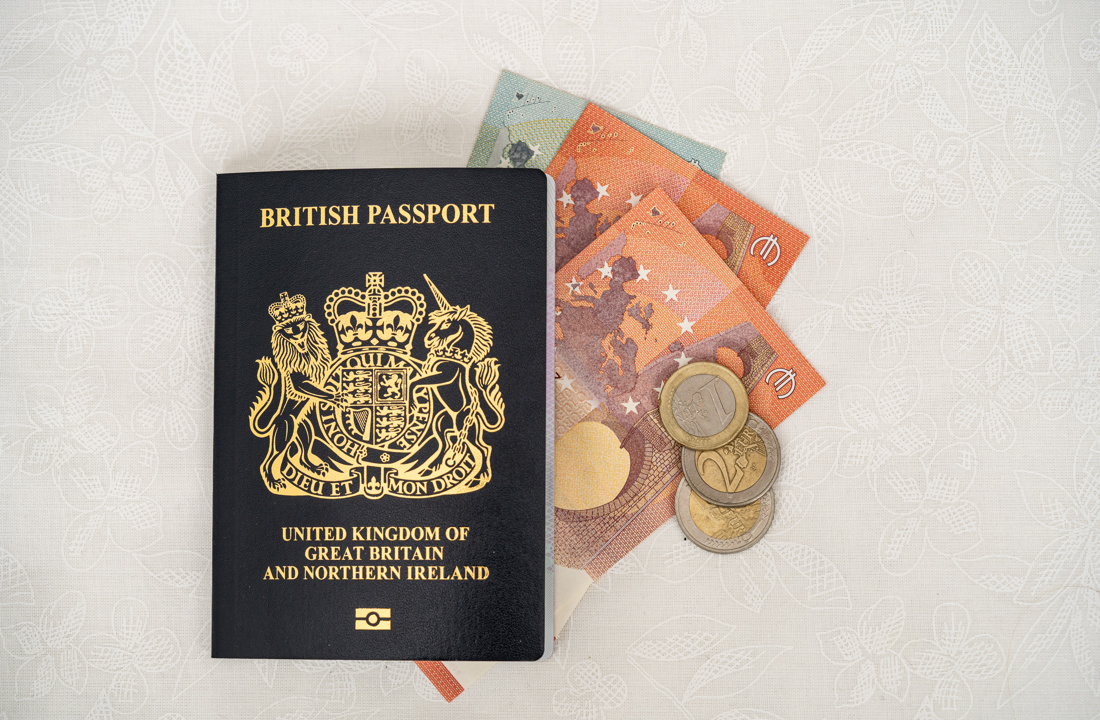-
Our payment system is temporary unavailable due to a technical issue. We're working to fix this and appreciate your patience. Please try again soon.
Wherever you’re jetting off to on your travels, it’s a good idea to carry some cash. Using credit and debit cards while you’re away can lead to costly bank fees, and relying on mobile payments can leave you in a tricky position when your phone battery runs out.
Travelling with cash is also handy for smaller purchases, particularly if you’re going off the beaten track. Rural and lesser-known locations aren’t necessarily set up for card payments like bigger cities are, and having some of your destination’s local currency in your wallet is also handy for tipping.
There are limits to be aware of when it comes to how much cash you can travel with, though, whether it’s British Pounds or foreign currency in your wallet. And it’s important to know how to stay safe when carrying cash abroad, to ensure your holiday goes without a hitch.
Our guide to travelling with cash covers everything you need to know ahead of time, including buying travel money, legal declaration limits, how much cash you can fly with, and the safest ways to carry money abroad.
How much money can you take abroad?
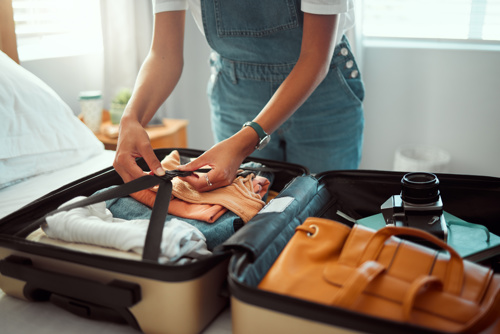
If you’re planning to take cash out of the country, knowing the cash travel limits is key to staying on the right side of the law. And those limits will come down to the location you’re flying from, and to.
Cash limits when travelling from Great Britain
If you’re travelling into or out of England, Scotland or Wales with £10,000 cash or more, you’ll need to declare it or risk your money being seized, being fined, or both. You can declare your cash via the gov.uk portal or at the airport or port.
Cash limits when travelling from Northern Ireland
You’ll need to declare €10,000 cash or more if you carry it between Northern Ireland and any non-EU country. That includes Great Britain, although you don’t need to declare any amount of cash when travelling the other way – from Northern Ireland to Great Britain.
Cash limits when travelling to other countries
Rules on carrying cash vary from country to country, so you’ll need to check the rules of the country you’re travelling to. For example, for several countries in the EU you’ll need to fill in a cash declaration form or declare money at the airport if you’re carrying €10,000 or more, but this won’t apply to every European country.
Figures vary even more when travelling to countries on other continents with different currencies, so it’s always worth doing your research before your trip to avoid any surprises. If you fail to declare it, your cash can be seized by a Border Force officer and you may face a fine of up to £5,000 according to cash declaration guidelines on GOV.UK.
How much cash can I bring into the UK?
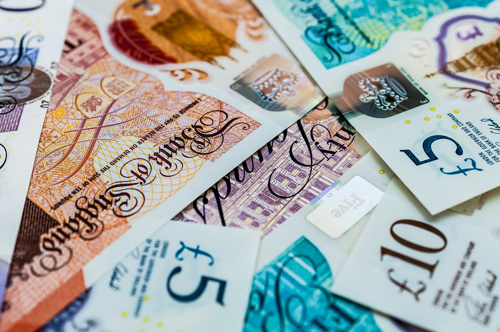
You can bring up to £10,000 in cash into the UK – or €10,000 or more into Northern Ireland – without declaring it. For cash amounts of £10,000/€10,000 or more you’ll need to declare it with customs when travelling to the UK.
Bear in mind that if you’re travelling as a family or group and your shared total is £10,000/€10,000 or more, you’ll need to make a declaration – even if each individual member of your travel party is carrying less than that. Your combined total is the figure that will be taken into account, so check the legal guidelines for details on how and when to declare cash before you travel.
You’ll need to give details about:
- Who’s carrying the cash, including details like their ID and address
- Proof of your journey, including any stops along the way
- The amount and type of cash and how you got it
- How you plan to use the cash
Travelling with cash: top tips before you go
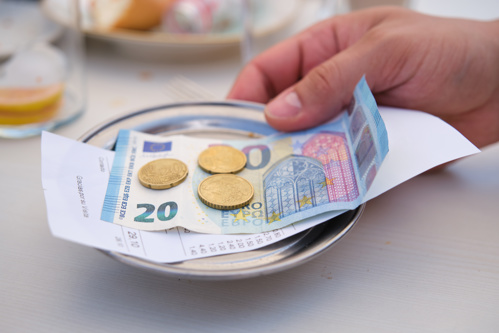 Regardless of how much cash you’re travelling with, running through these pre-travel money preparations can keep things running smoothly on your holiday.
Regardless of how much cash you’re travelling with, running through these pre-travel money preparations can keep things running smoothly on your holiday.
Research the local currency
Knowing a bit about the currency in your destination is really important when you’re travelling with cash. If you’re visiting a country in the EU, for example, knowing which countries use Euros is a good start. And being familiar with the banknotes and coins available in the local currency is handy when you’re paying in cash while you’re away.
It’s also worth researching your destination to see if there are certain things you can only pay in cash for. Planning to hit the local markets, or eat out and leave a tip? In these sorts of situations it pays to have some money in the local currency to hand.
Work out how much cash you need
Calculating a daily budget is a really good way to work out how much Travel Money you need to take away with you. If you’re going on an all inclusive holiday to Spain, for example, you might not need as much cash as you would on a self-catering trip to somewhere like Romania, where cash is still widely used as a form of payment, especially in the smaller villages.
To get an idea of your travel budget, research typical prices for things like meals, drinks and transport in your destination. Factor in a buffer for unexpected costs and you can be sure you’re exchanging the right amount.
Exchange your Travel Money
Comparing currency exchange options and fees in advance can save you money – leaving you with more to spend on your holiday. It also means you can avoid costly ATM fees and credit card charges while you’re away. Keep an eye on the exchange rate of your currency and consider exchanging your holiday money a few weeks in advance of your trip.
Consider ways to track your spending abroad
If you’re worried about exceeding your holiday budget while you’re away, it’s worth keeping an eye on the daily budget you worked out before your trip. Taking a few minutes to do a quick cash review at the end of each day will help you stay on track.
If you’re away for a longer period of time, consider a weekly budget instead. That way you can get a good idea of how much you have left and maximise your holiday budget.
Tick off banking and insurance preparations
As well as carrying cash, it’s advisable to have a credit or debit card with you as a back-up in case of emergencies, and for making bigger purchases while you’re away. But check if you need to inform your bank of your travel plans before you go, so they don’t flag any international payments as suspicious activity on your account.
Also have your bank’s international contact numbers to hand, as well as the number for your travel insurance. Get familiar with the basics of what your policy covers as well as any specific requirements for making a claim, which will speed things up in the unlikely event that you need to.
The safest ways to carry money abroad
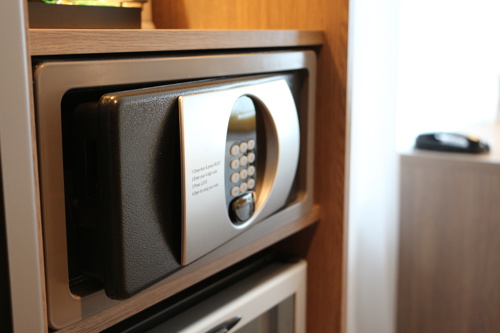
Thinking about how to keep your money safe also plays an important role when you’re travelling. For example, it’s wise to keep large sums of money out of view when you’re out and about, and to store the bulk of your cash in your hotel’s safe if you have one.
There are lots more ways you can keep your money secure, including splitting your cash between the travellers in your party, and using RFID blocking technology. We’ve gone into depth about each method in our full guide on how to keep money safe when you’re travelling abroad.
Where to buy your Travel Money
Wherever you’re heading to, you can order your Travel Money with M&S online today for Click & Collect with no commission and no hidden fees. T&Cs apply.
